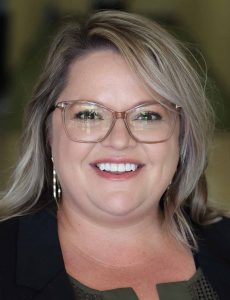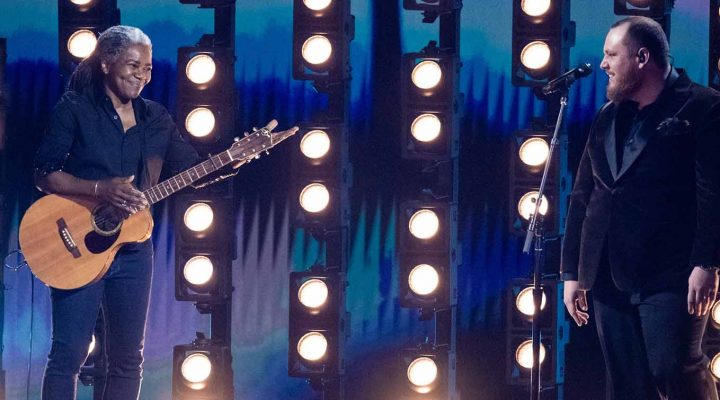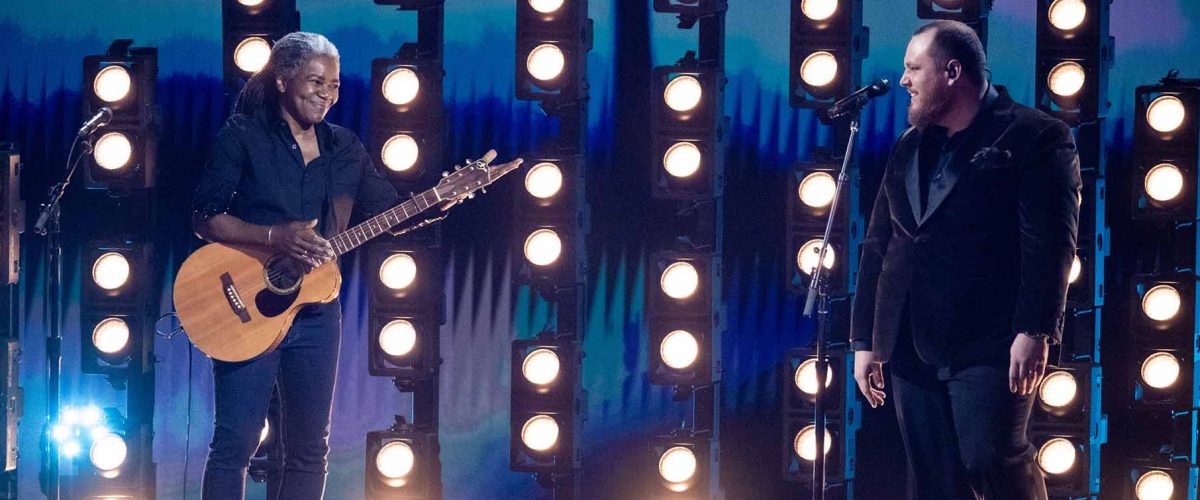I cried Sunday night watching two seemingly different individuals perform one of my favorite songs together. I love music and look forward to the Grammy Awards every year.
While I love celebrating my favorite artists and watching about half the performances, once in a while a performance stands out and really moves me. One of the most iconic moments from the Grammys that made such an impression happened 20 years ago when I was in fourth grade.
It was the 36th Grammy Awards, and Whitney Houston came out in a sparkling white dress singing “I Will Always Love You” flawlessly. I remember sitting in front of the television, mesmerized and holding back tears as she hit every note in perfect tone as if her version of the song took no effort at all. It was so perfect and captivating; it felt like we were all in the room with her for a moment, although we were thousands of miles away.

Mallory Homeyer Herridge
Now, 20 years later, I am crying during a performance again.
This time, it’s a duet between singer-songwriter Tracy Chapman and country performing artist Luke Combs. There’s a 26-year age difference between the artists and quite a bit of other differences between them as well. Together they played Chapman’s 1988 hit, “Fast Car,” which Luke Combs gave resurgence to with his Grammy-nominated 2023 rendition.
The A-list audience from every genre and life experience knew every word, and many stood dancing for the entire song. There was a sense of oneness in the room amidst a song of sorrow, grit and choice that somehow resonated with everyone.
As Upworthy wrote, “Some songs really do have the power to bring folks of all walks of life together.” As reported by NPR, Combs commented in the video before the performance, “It’s just such a cool full circle moment for me. … Just to be associated with her in any way is super humbling for me.”
Why did this performance make me cry?
First, it was tremendous to see an artist who hasn’t performed since 2009 not only honored and celebrated for her artistry and gifts again at the age of 59, but also give such a fantastic display of musicianship.
Second, the duet adhered to Combs’ country version, including fiddle and twang, but mostly stayed faithful to the original. As they sang, we were reminded this song is timeless. All ages, races and genders stood and sang along as they played. We saw a visual and auditory representation of how this song relates to many people from all walks of life.
As New York Times pop music reporter Ben Sisario perfectly described it, “The song … felt incredibly spacious — larger than the limitations of genre, welcoming and expansive enough to hold every single person it had ever touched, regardless of the markers of identity that so often divide us. It was a rare reminder of music’s unique ability to obliterate external differences.”
Perhaps my tears were a response to my nervous system experiencing a glimmer of hope amidst a divisive, polarized and politicized climate.
Thanks to a gift from the Eula Mae and John Baugh Foundation, the Center for Church and Community Impact received a three-year gift to facilitate evidence-based training for clergy and congregation peer-learning cohorts in three areas. In a recent conversation with one cohort, we discussed the challenge of hard conversations. We wondered about the reality of a congregation of any size being able to navigate difficult discussions surrounding what some perceive as hot-button, politicized topics and come out the other side still resilient and intact, meaning individuals and families with different convictions and understanding still worshipping and engaging in life together as a faith family.
“Most of us have an innate need to turn every discussion into debate rather than listening to one another with empathy and seeking to understand another perspective.”
At my core, I want this to be possible. However, this often feels like an impossible task for Christians, including me. Unfortunately, due to our increasingly polarized climate, most conversations become issue focused rather than centering people. Most of us have an innate need to turn every discussion into debate rather than listening to one another with empathy and seeking to understand another perspective.
When driven by fear, I wonder if a church is incapable of achieving this kind of all-inclusive, big-tent faith family unless they avoid hard discussions. There seem to be enough churches in most cities for individuals to choose; if someone does not agree with a church’s decision or doctrine, another church can easily be found.
We should all strive to remain in a learning posture, seeking cultural humility and curiosity rather than judgment when encountering differences in our lives. This is especially true for Christians, but actually living with this belief is challenging. Choosing to worship alongside faith family that disagree with us theologically and/or politically means Sunday school could get very interesting. For those whom the hot-button issues affect personally, discussions can move from interesting to exhausting and then, unfortunately, from exhausting to traumatizing. When the latter happens, it may be time to worship elsewhere for your health and safety.
So, what does this have to do with the Grammys? When art in today’s culture inspires me, I take a moment to pause. Inspiration and asking “what if” questions lead me to connection with the divine. When impossibility weighs heavy in church life, we can let it overtake us or lean into the Spirit to spark creativity and inspiration.
Seeing Chapman and Combs singing with joy and nonverbal cues of respect and admiration for one another inspired me. They represent different genres of music, style, age and gender. Their typical audiences are quite different from one another and likely have differing political views. On that stage, we did not see them choose not to work together due to differences. Instead, we saw the magic that is created when, at first, what seems opposite comes together to create the most perfect harmony and balance. For one moment in time, we were privy to a glimmer of hope of what could be in our world.
“We need more examples of this kind of hope in our congregations today.”
We need more examples of this kind of hope in our congregations today — people from various walks of life laying down their swords or signs and, instead, choosing to sing a new song together. Singing a song that celebrates difference but assumes a posture of curiosity and humility while seeking to listen and learn from one another.
Suppose we were driven by curiosity and hope rather than fear. In that case, I wonder if we would see more churches able to engage in challenging conversations, trusting wholeheartedly together at the beginning and end of the difficult conversations that the person on the other side of the issue still seeks God and is loved by God.
As Christians, we are called to be witnesses in the world, testifying to God’s love. We need also to notice glimpses of God’s love in the world around us. Perhaps some of the most vital witnesses of peace and love are happening outside the church building.
Mallory Herridge serves as assistant director of The Center for Church and Community Impact (C3I) at the Diana R. Garland School of Social Work at Baylor University.


